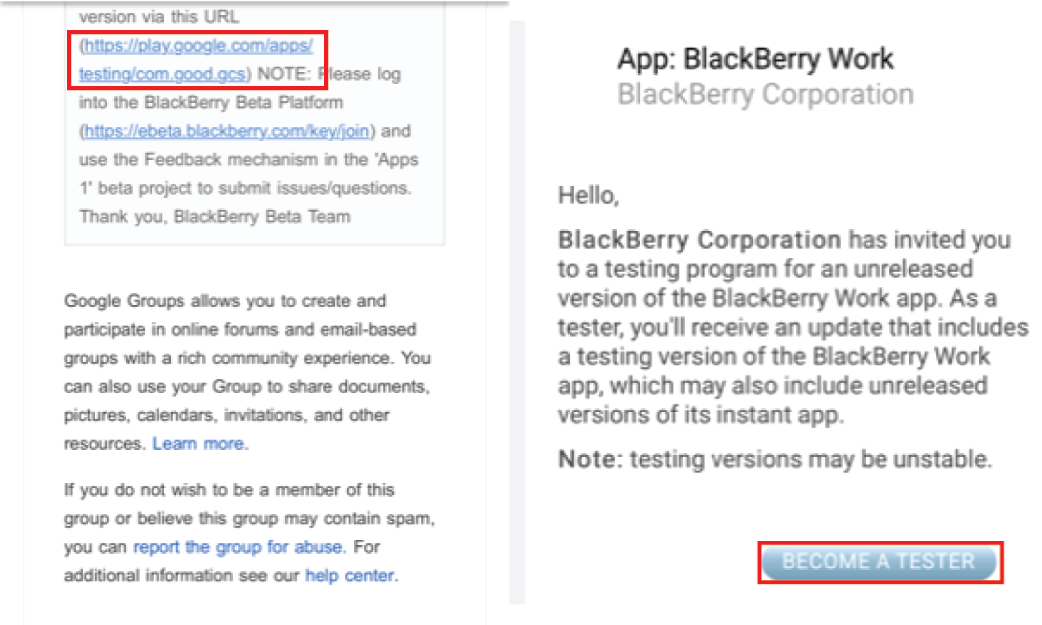
Before franchising your business, you must consider several things. Know the differences between franchises as well as business opportunities. Franchise marketing is a great way to grow your company. To increase their mailing list, franchise owners can use email marketing automation. They can also use special promotions and offers during the soft opening of their business.
Steps to franchising a business
You need to be prepared to franchise your business. First, you must have a business plan. This includes identifying your target customers and assessing the local market for your products and services. Second, you must secure enough funding. You will need adequate funds for training, support and marketing. The amount that you require for the initial investment will vary depending on your business.
Third, it is important to seek out experts who can help you navigate through the highly-regulated world of franchising. An accountant can help you prepare financial information, for instance. Additionally, a franchise attorney will help you navigate franchising laws and regulations. Next, you must establish a good reputation for yourself and be committed to your franchisees for the long term.

Distinctions between franchises and business opportunities
While business opportunities and franchises are similar in structure, the real difference lies in how they sell. A franchise requires its seller to follow specific rules, while a business opportunity does not. Franchises are typically more expensive than business options. Franchises may also need a royalty payment. Business opportunities are not affected by this.
Business opportunities are less structured, and may appear more attractive at first. Franchises on the other side offer comprehensive training and support structures. A franchisee will typically receive extensive training from the franchisor. Additionally, the franchisor can provide many support functions like managing payments and scheduling. The franchisor could also help with marketing, by selecting the best place to market its products. This can reduce the costs of marketing for the licensee.
Franchise license requirements
Make sure to understand the legal requirements prior to applying for a licence. Many states have strict regulations, and require that franchisees adhere to certain standards. The franchise agreement must state that the franchisee must comply with certain marketing plans and community requirements. A franchisee must also obtain permission to use a franchisor’s trademark to distribute its goods. The franchisor has to retain some control of the franchisee's operations. Additionally, the contract payment arrangement must be in accordance with the FTC.
Additionally, franchisors need to adhere to certain franchise disclosure requirements and registration laws. For example, in New York, franchisors must file advertising materials and disclosure documents with the appropriate regulatory authorities.

A small business loan is required to open a franchise.
There are many ways to get financing to start a franchise company. First, submit an application. It should include information regarding your net worth, assets, liabilities, business credit, and personal credit scores. This information will allow lenders to determine how much money you can borrow. In general, the maximum amount you can borrow is approximately 35% of your net wealth.
Next, prepare your business plan. While you can submit a simple one-page plan to apply for a small business loan, a more detailed plan will be required by banks and the SBA. It is also important to remember that these loans can only finance the initial start-up costs of a franchise, and they do not finance ongoing franchise fees.
FAQ
Can anyone be a Consultant?
A consultant is someone that helps you achieve your goal. They can offer advice on how to do it better, faster and cheaper.
A consultant can help you solve problems, make decision, or negotiate with people.
Consultants are often hired to help with specific tasks and projects.
In reality, consultants are generally paid hourly or daily rates and not per project.
Are you a consultant?
Consulting isn't just a career option for those who want to earn quick money. It's also a great place to gain valuable skills and build a foundation you can use in your future work.
Consulting offers various opportunities from project management, business development, strategy, training, and leadership roles. You might find yourself working on projects ranging from small start-ups to large-scale international corporations.
Consulting provides you with the opportunity to develop and hone your skills, as well as gain experience within a range of industries. This could mean learning to manage teams, negotiate contracts, write proposals, manage budgets, analyze data, create presentations, conduct market research, and much more!
How do I choose the right consultant?
Three main factors should be considered:
-
Experience - How experienced is the consultant? Is she an expert, beginner, intermediate or advanced consultant? Do her qualifications and knowledge show on her resume?
-
Education – What did this person learn at school? Did he/she study any relevant courses after graduating from high school? Are we able to see evidence of his/her learning through the way he/she writes
-
Personality - How do we feel about this person? Would you want this person to work for you?
-
These questions are used to determine if the candidate is right for us. If the answers are not clear, it may be worthwhile to interview the candidate in person to get more information about them.
Do I really need legal advice?
Yes! Yes. Many consultants sign contracts without seeking legal advice. This can create problems down the line. If the client terminates an agreement with the consultant before the completion date, what are the consequences? What happens if your consultant doesn't follow the contract deadlines?
To avoid any problems, it's best that you consult a lawyer.
What qualifications do you require to become a Consultant?
It is not enough to have an MBA degree. You must also have experience as a consultant. You must have at least two years' experience working in consulting and/or training within a large company.
You will need to have worked closely alongside senior management teams in order to develop strategy projects. This means you'd have to be comfortable presenting ideas to clients and getting buy-in.
Additionally, you will need to pass a professional qualification such as the Chartered Management Institute Certified Management Consultant (CMC).
What should your consulting fees be?
It all depends on the service you offer. You don't have to charge anything if you provide services free of charge. If you're selling products or services however, prices should be determined based on their value.
If you are providing low-quality services, then you don't have anything to sell. Why would anyone pay anything for you?
If you're providing high-quality services you might ask for a greater price. Because people are aware of the value you provide, they will be more willing to pay you a higher rate. Clients who purchase multiple packages may be eligible for discounts.
What happens when the consultant finishes his job?
After the consultant completes the work, s/he will submit a final report detailing the results of their work. This report includes the deliverables and project timelines.
Then, you'll review the report and decide whether the consultant met your expectations. If the report does not meet your expectations, you have two options: to request changes or to terminate the contract.
Statistics
- 67% of consultants start their consulting businesses after quitting their jobs, while 33% start while they're still at their jobs. (consultingsuccess.com)
- So, if you help your clients increase their sales by 33%, then use a word like “revolution” instead of “increase.” (consultingsuccess.com)
- On average, your program increases the sales team's performance by 33%. (consultingsuccess.com)
- Over 62% of consultants were dissatisfied with their former jobs before starting their consulting business. (consultingsuccess.com)
- According to statistics from the ONS, the UK has around 300,000 consultants, of which around 63,000 professionals work as management consultants. (consultancy.uk)
External Links
How To
How to Start a Consultancy Company and What Should I Do First
Starting a Consulting Company is a great way to make money online from home. No prior business experience is required. A good place to start your own consulting company is to build a website. Once you've built a website, you'll want to use social media platforms such as Facebook, Twitter, LinkedIn, Instagram, Pinterest, YouTube, etc... to get the word out about your services.
You can use these tools to put together a plan for marketing that includes:
-
Content creation (blogs).
-
Establishing relationships (contacts).
-
Generating leads (lead generation forms)
-
Selling products via ecommerce websites
Once you have created your marketing strategy you will need to find clients that will pay for it. While some prefer to network through events and networking groups, others prefer to use online tools like Craigslist or Kijiji. Your choice is yours.
After you have found new clients, it's important to discuss terms and payment options. This could include hourly fees, retainer agreements, flat fee contracts, etc. So that you are able to communicate clearly during the entire process, it is important to understand what you expect from a client before you accept them.
An hourly contract is the most popular type of contract for consulting services. This agreement allows you to agree to provide services at a fixed price each week or month. Depending on the type of service you are offering, you may be able to negotiate a discount depending on the length of the contract. Before you sign a contract, ensure you understand everything.
Next, create invoices for your clients and send them. Invoicing is one those things that seem so simple until you actually do it. There are many ways that you can invoice your clients depending on what your preferences are. For instance, some prefer their invoices to be emailed directly to clients while others prefer hard copies to be mailed. No matter what you do, make sure it works!
After you've finished creating invoices, you'll want to collect payments. PayPal is the most popular payment option because it's easy to use and provides multiple payment options. Other payment processors such as Square Cash. Google Wallet. Apple Pay. Venmo.
Once you're ready to begin collecting payments, you'll want to set up bank accounts. Having separate checking and savings accounts allows you to track income and expenses separately. Setting up automatic transfers into your bank account is also helpful when paying bills.
When you start a consultancy business, it may seem overwhelming, but once you learn how to do it correctly, it becomes second nature. This blog post will provide more information about starting your own consultancy business.
Starting a consulting firm is a great way to earn extra cash without worrying about employees. Many consultants work remotely. This means that they don’t have to deal in office politics or work long hours. You have more flexibility than traditional employees because you aren't tied down by work hours.